Notion
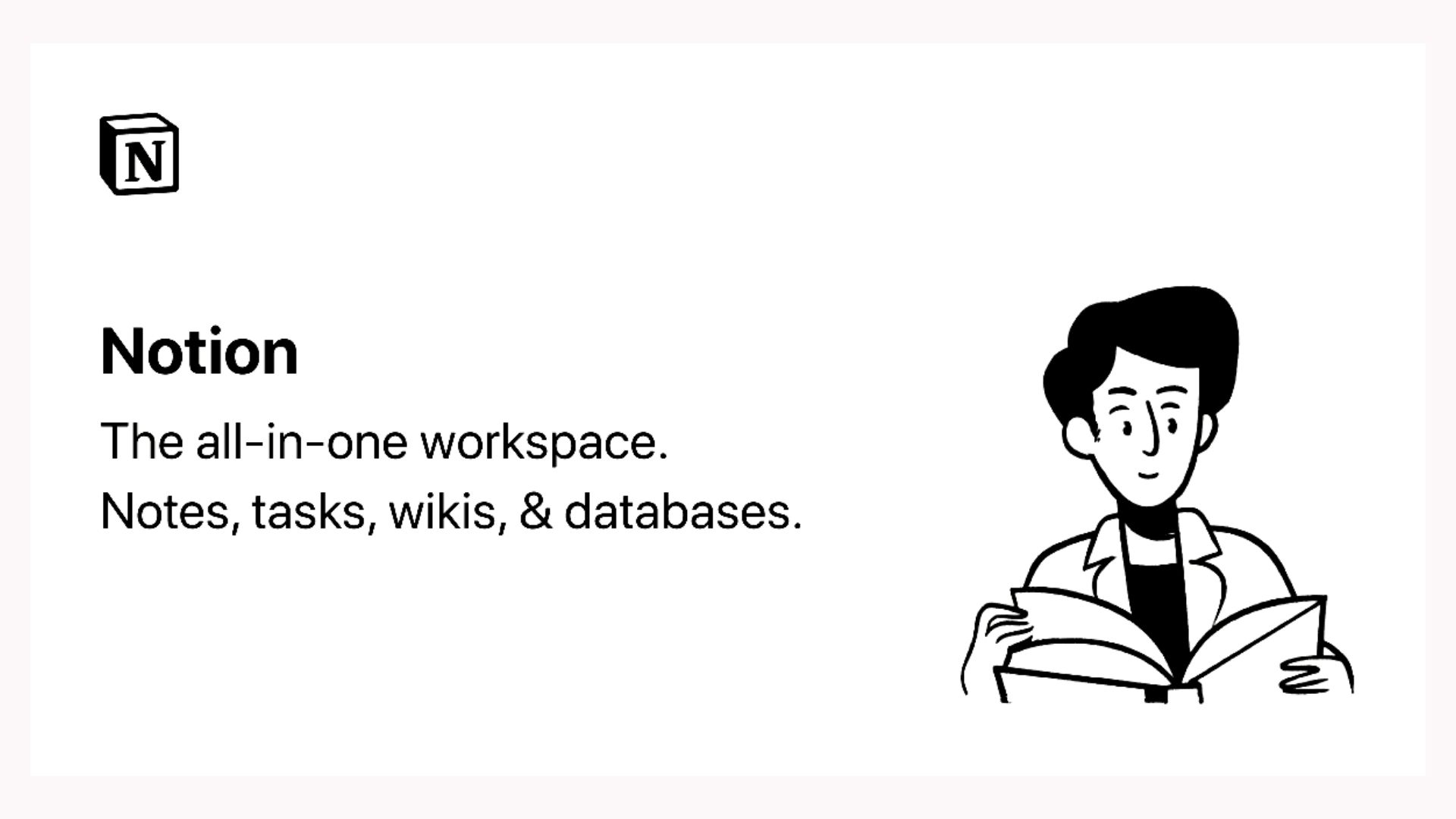
A story we admire
It’s impossible to start talking about Notion without mentioning their history...
Who created Notion?
Notion started in 2013 in San Francisco. Here's one of the rare photos of Ivan Zhao (left) and Simon Last (right), the people behind the Notion tool.

These two developers had a futuristic vision of computer software. Inspired by Steve Jobs and others, they wanted to create their own innovation that would change the world of work. Their idea: to create a simple application that would bring together all management and organizational tools. Thus, Notion was born. For two years, they began developing Notion.
At first, the product wasn't stable and didn't find its audience. To compensate for this, they were short on money and had almost no budget to continue developing Notion.
In 2015, they made a foolish decision that would become the best choice for Notion. The two founders chose to move to Kyoto. A place they didn't know and a language they didn't speak. It was a decision that would completely change their lives. And it's choices like these that we admire at Noxcod.
It wasn't just the fact that they were doing something eccentric that blew us away about their work. But they were so confident in their product that they dared to drop everything and invest their last dollar in developing Notion. Ambition and confidence are values we share at Noxcod, and Notion's story inspires us.
For a year, they worked tirelessly. And in 2016, they released version 1.0 of Notion! The tool exploded, with 1 million users communicating solely by word of mouth.
In 2018, Notion 2.0 came with a new feature: the addition of databases. This added value helped them gain even more recognition.
In April 2020, Notion raised $50 million and was valued at $2 billion. The resulting progress allowed them to return to San Francisco and open other branches, such as in Dublin and New York.
Today, Notion continues to expand in different countries and can no longer be considered a human-sized company.
What is Notion?
Notion is an app available on Mac, Windows, Android, and iOS. Notion is an all-in-one tool. It's your task manager, calendar, database, movie, and TV list. It helps you manage your professional and personal life. It's your personal assistant at all times.
It helps you and, if used correctly, can increase your productivity. It allows you to design your workspace as personalized and adaptable as you wish.
Notion can be used in several ways, it can be:
- a note-taking application;
- a request for writing;
- a management tool for your shopping lists;
- a project management tool;
- a wiki;
- a tool for managing your personal finances;
- an asynchronous communication tool;
- a file transfer application;
- a spreadsheet;
- a CRM;
- a documentation tool;
- a shared knowledge base;
- a custom database;
- an intranet;
- a CMS.
We can even do all of this at the same time.
Fully customizable pages
Notion evolves as you progress through each page. A page is a place where you can write anything, invent anything, and create your workspace. Pages are free and can be shared, created, and reinvented. Your pages can look however you like.
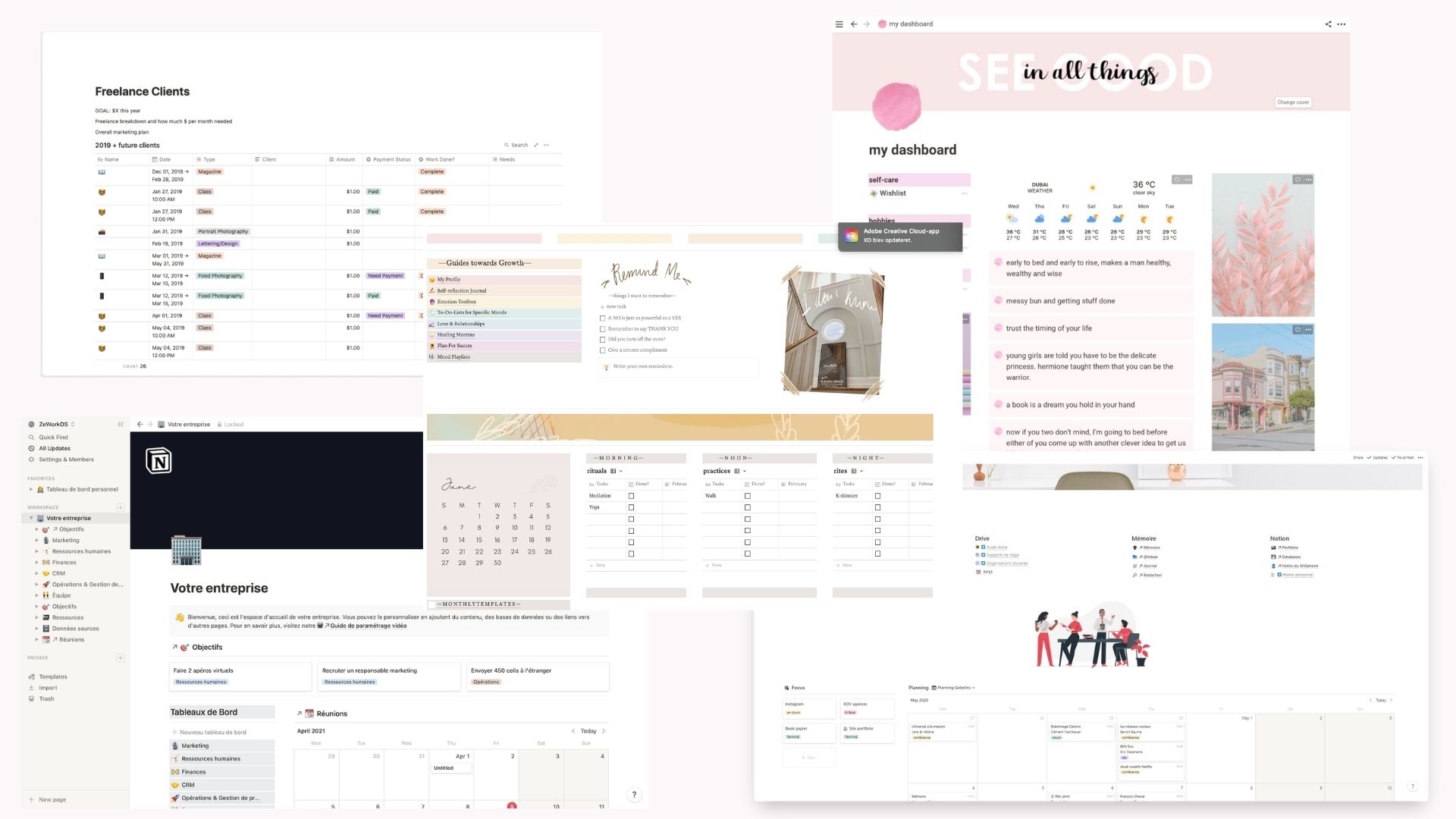
How do we use Notion?
Notion is the extension of all the brains on the Noxcod team. It's our task manager, database, wiki, and writing tool all rolled into one.
Task management
We manage our tasks using a very useful Kanban board that allows us to track our work throughout the year. This allows us to know what we have left to do and to supervise each employee's tasks at a glance.
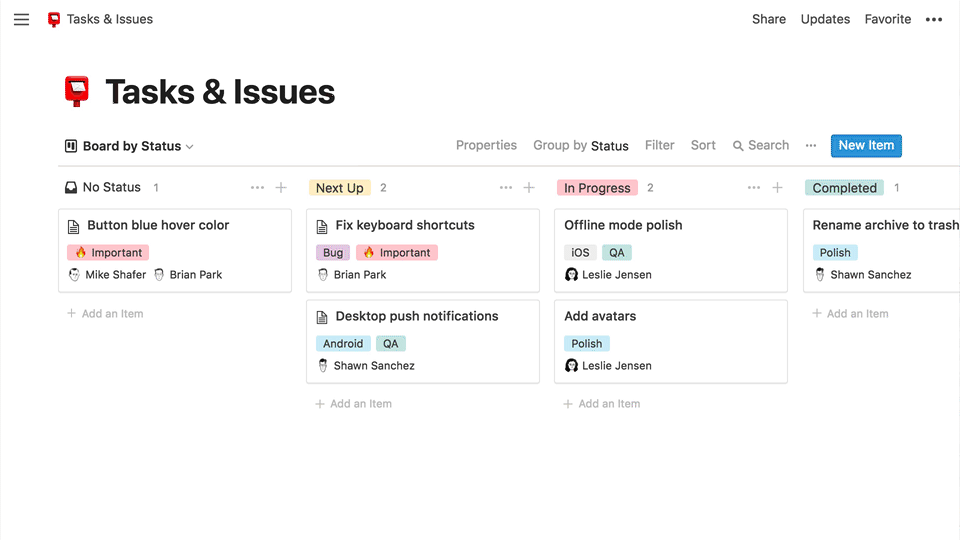
Database and Wiki
Databases allow us to gather all the information necessary for the proper functioning of Noxcod. We have databases for everything: one for the tools we use, one for the tools to test, another to list all our old projects... All these databases allow us to track our progress over the long term and define new objectives to better target our customers and stay on top of things at all times.
.png)
Writing tools
Notion is the ideal writing tool for writing our blog articles and social media posts.
What's really handy about Notion, and what sets it apart from a Google Doc and Word, is the ease of editing. When we write an article, we want to be able to make quick changes. With Notion, learning two or three keyboard shortcuts can save us a lot of time. You can also rearrange the layout of your sentences with a simple mouse movement.
.png)
While it can do much more, we're still just getting started with it. But Notion is very useful for gathering our ideas and sharing them quickly.
Pricing by concept
Price is a key motivator for us to buy a product. Notion understands this very well and can be used for free. The free package's options are, of course, limited, but it still allows us to use the product almost completely. And if you want to use Notion without limits, the quantities remain affordable:
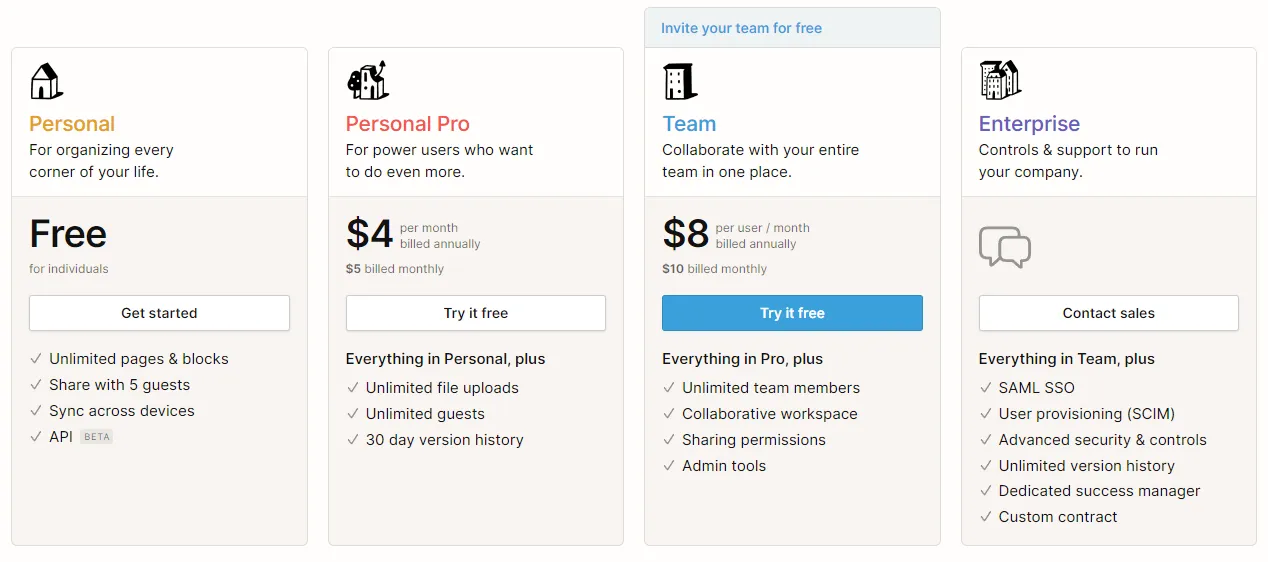
The prices are quite affordable, making the tool very accessible to many people. Compared to tools like Coda ($10) or Evernote ($7.99), Notion is very competitive.
The Benefits of Using Notion
Personalization
The first advantage of Notion is its infinite customization. It's completely free to use and allows you to approach your work however you like. Notion's typography, colors, theme, and entire aesthetic can be shaped however you like.
The advantage of Notion is that there's no structure. The application is very flexible and adapts to your way of working. You create your tool (personal or professional), not the platform.
Easy to use
The tool is so simple that in just a few hours of use and with just two or three keyboard shortcuts, you can master the platform's basics. Notion feels like a new generation of Google Docs. Despite the simplicity of Google's tools, Notion has managed to create a more intuitive platform.
When you create your Notion account, you'll immediately be taken to a page with a 10-minute Getting Started Guide that will familiarize you with all the basics. On the left, you'll find a template that matches your chosen plan (Team or Personal).
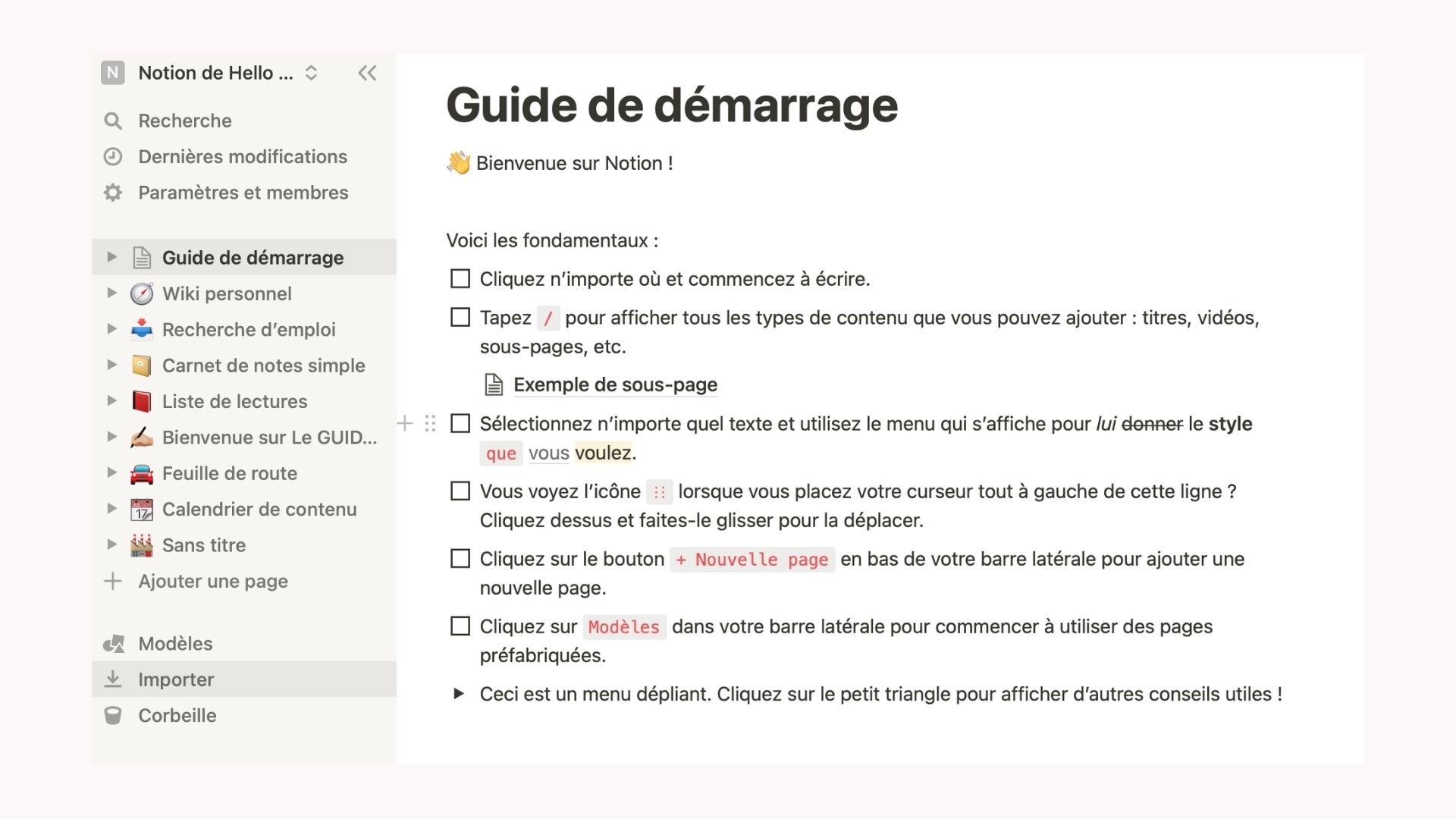
Notion Community
The Notion community is very active. This is a real plus for understanding how to use and develop your workspace with complete peace of mind. If you have any problems, you can get help or a response in a very short time.
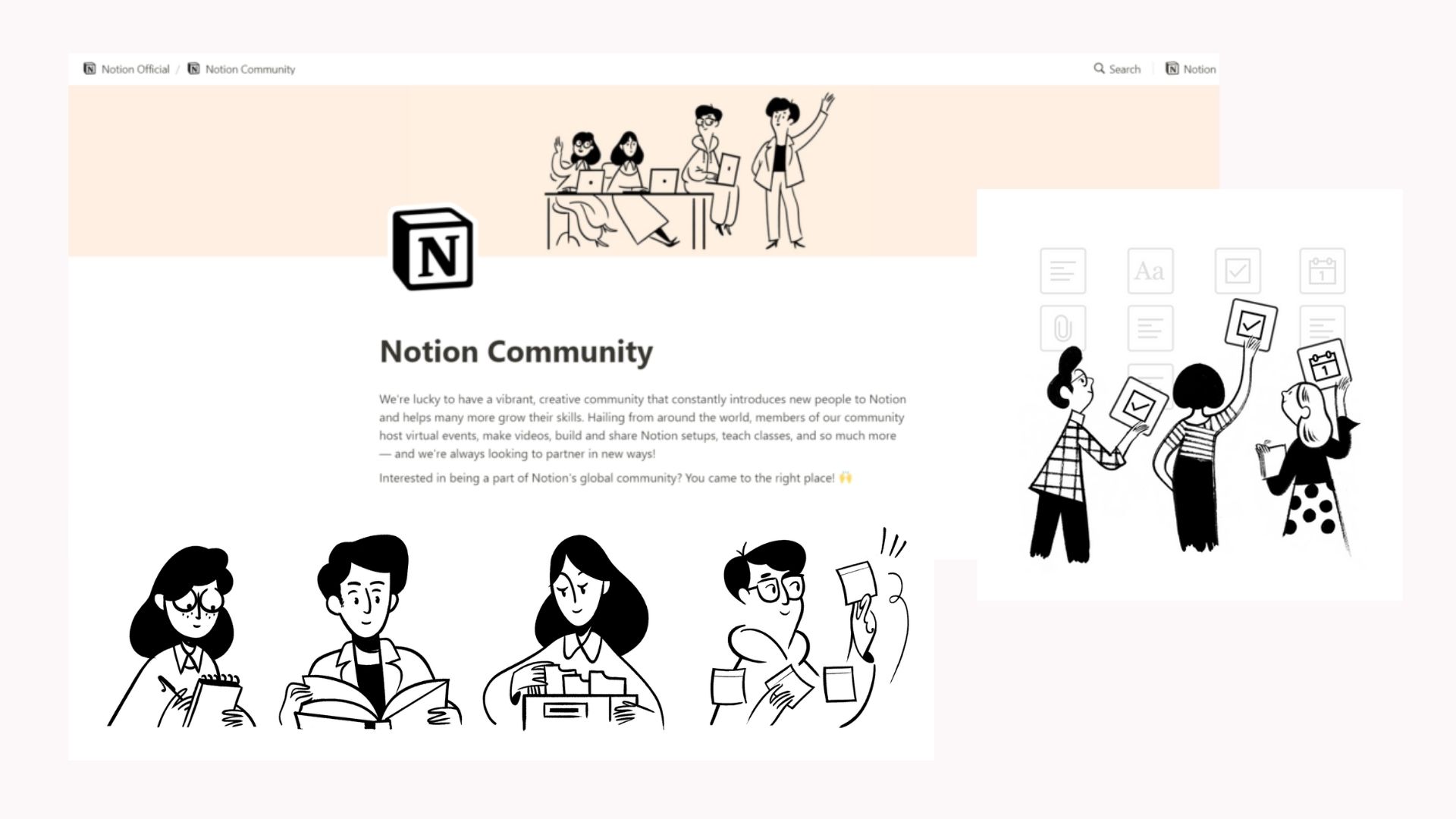
Sharing
Sharing a page with colleagues has never been easier. In just a few seconds, you can download the page of your choice. You can share with individual colleagues, with groups, outside your team, and even publish to the web. Their permission options allow you to better manage collaboration (restrict, extend, restore, stop). All these options make teamwork much easier.
API
APIs are a real plus for Notion, and they're growing more and more. You can connect hundreds of software programs to Notion, like Figma, without necessarily knowing how to code. With programs like Make or Zapier, you can add features. The beauty of APIs is that they allow you to connect all your data in databases, pages, or Notion blocks. Unfortunately, they still need some improvements to simplify their integration, but it's always a plus to be able to customize your Notion account.
The Disadvantages of Using Notion
Databases are a bit lacking in development
Databases are one of Notion's main drawbacks, in our opinion. They're less advanced than Airtable or Coda, making them Notion's weak point. What's missing from Notion are data types.
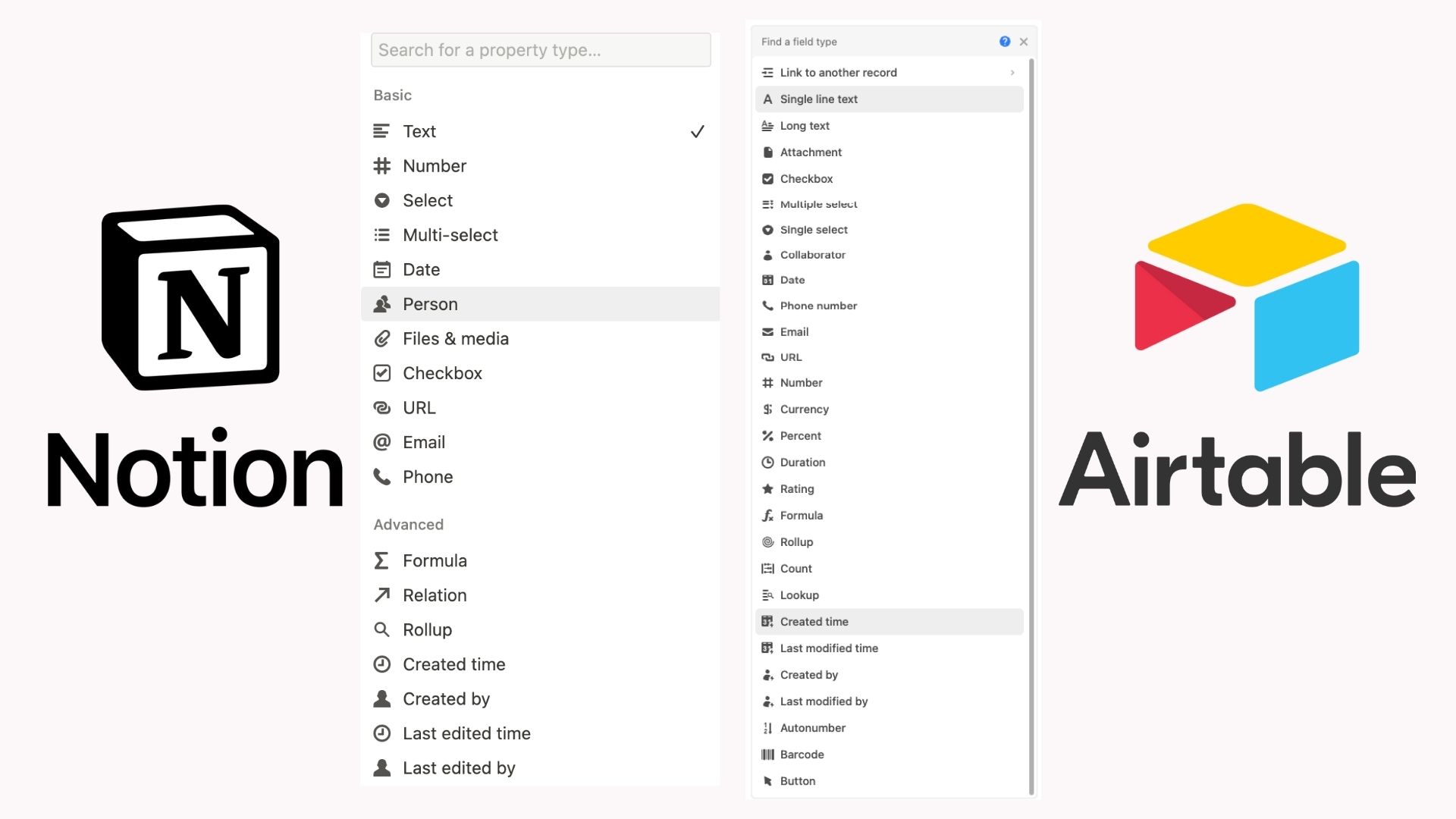
They are not as developed as Airtable, for example, notation would be very interesting to implement. Or simply add more options for numerical databases. They are currently too limited and do not allow for precise calculations.
The ability to add a simple button, a chart, or simply select a column in databases would make Notion an incomparable tool and even more powerful than it already is.
Perhaps too infinite and too customizable
Customization can also be a drawback. Notion is so customizable and infinite that you can easily get lost by creating too many pages, for example. Our advice to avoid getting lost is to take care of the structure; it's essential from the beginning. The best thing to do is to test your preferences, find small and nice integrations, and a simple and structured theme that makes you want to organize your tool.
Conclusion
Notion is a completely free product that can be managed the way we want it. It forms the basis of our internal communication and allows us to move forward with our data storage processes. This is a real plus for the future of NoxCod because it will allow us to consolidate our processes and work habits and facilitate the transmission of data to future Noxcoders in just a few clicks.



